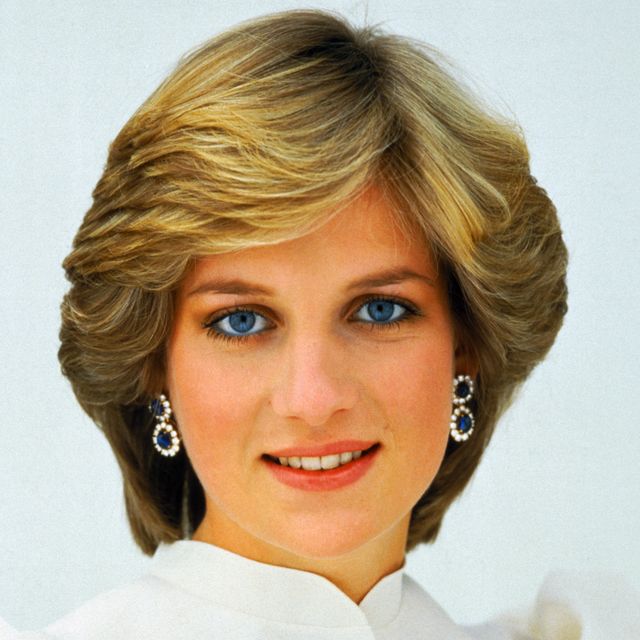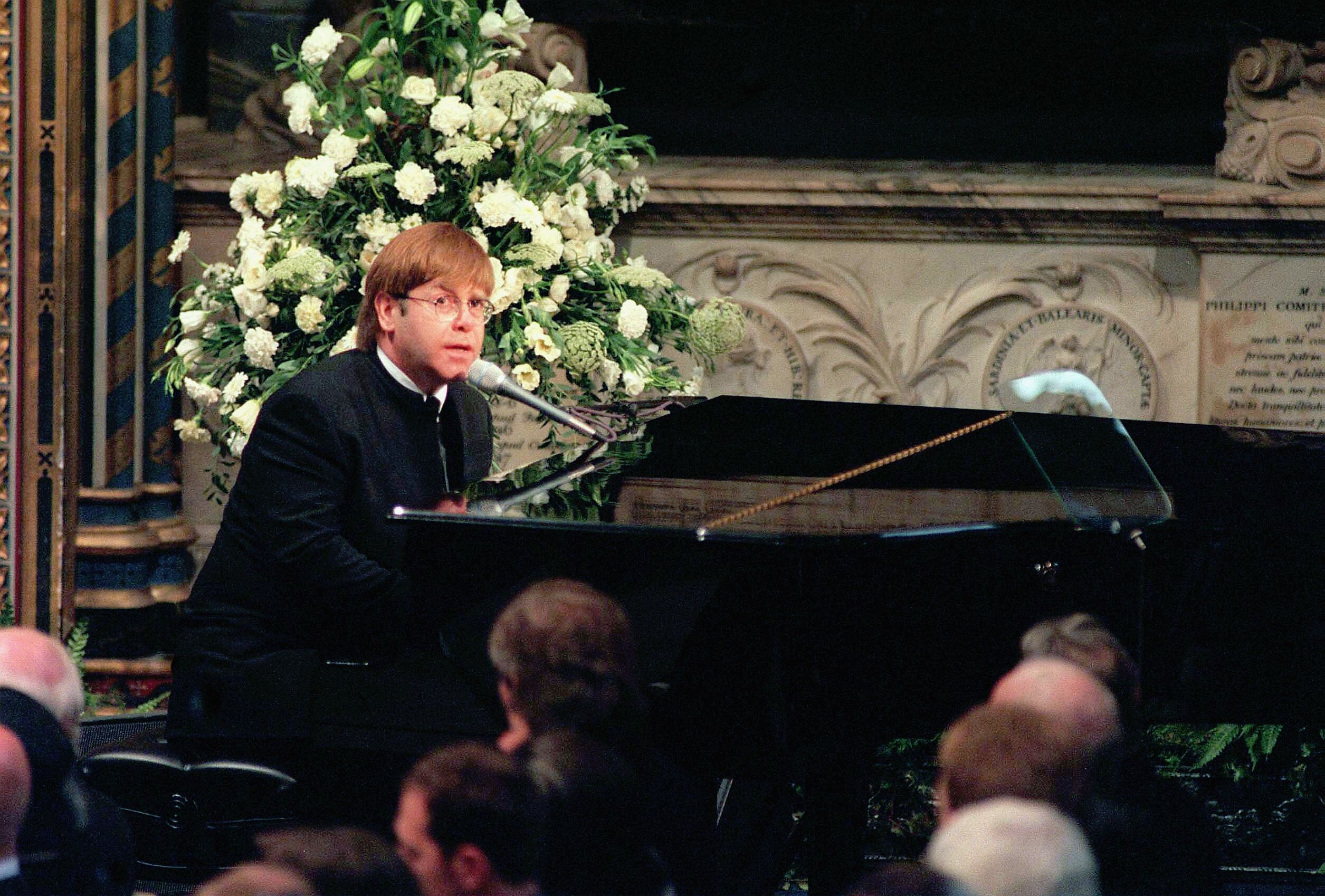London wasn’t just quiet that morning — it was cloaked in a silence only profound grief can summon. Across the city, bells tolled slowly as if to count the tears of a mourning world. Outside Kensington Palace, the sidewalk disappeared under mountains of flowers, handwritten notes, teddy bears, and candles. Children clutched photos. Grown men cried. The death of Princess Diana had frozen time, and now, the world stood still to say goodbye.

:max_bytes(150000):strip_icc():focal(1079x1047:1081x1049)/princess-diana-death-1-567a04a8b1cd4633903e51a774b05194.jpg)
Inside Westminster Abbey, where centuries of royal rites had unfolded, the mood was unlike anything before. This wasn’t a state ceremony dressed in pomp. This was personal. The grief in the air was heavy and real. The velvet pews were filled with royals, dignitaries, celebrities, and humanitarians—but all eyes kept drifting to the man sitting quietly in a dark suit and sunglasses, his hands folded, his heart breaking: Elton John.

He wasn’t there as a performer. Not at first. He was a friend. A friend who had shared laughter, gossip, late-night phone calls, and genuine connection with Diana. Both had been wounded by fame. Both had endured ruthless tabloid scrutiny. But in each other, they had found kindness. And now, she was gone.
The weeks before the funeral had been a blur. Elton was shattered. He had only just attended the funeral of their mutual friend, Gianni Versace, when he received the call about Diana. He hadn’t believed it. Didn’t want to. He missed her final call. A small regret that would grow large in the days that followed.

He didn’t plan to sing. In fact, the idea was nearly turned down.
When Bernie Taupin, Elton’s longtime lyricist and collaborator, suggested rewriting “Candle in the Wind,” it felt both impossible and necessary. A song originally written for Marilyn Monroe would now hold the aching weight of the world’s most beloved princess. Bernie’s pen moved slowly but surely:
“Goodbye England’s rose, May you ever grow in our hearts.”
But even with the song complete, palace officials were hesitant. Some at Buckingham Palace weren’t comfortable with pop music interrupting royal tradition. There were murmurs that the performance should be replaced with a traditional hymn. But the outcry from the public changed everything. The people had chosen Diana as their princess, and they demanded something real, something that reflected her spirit.
That morning, just hours before the service, Elton was gently told he didn’t have to perform. If it felt too difficult, no one would judge. But Elton’s voice, though trembling, was certain: he would sing.
The moment came. He stepped up to the grand piano, its polished wood reflecting candlelight and sorrow. A hush fell. Cameras zoomed in. Millions watched, breath held.

The first notes echoed off ancient stone walls.
“It seems to me you lived your life Like a candle in the wind…”
Elton’s voice cracked slightly—but it didn’t matter. In that moment, the notes weren’t just sound. They were goodbye. They were grief transformed into something beautiful. And as he sang, the Abbey listened with reverence.
Queen Elizabeth looked down, solemn and still. Prince William and Prince Harry, boys wearing suits too big for their years, stared toward the piano, their pain etched deep and quiet.
The final line floated into the air, haunting and eternal:
“Your candle’s burned out long before Your legend ever will.”
There was no applause. Only silence. Sacred. Immense. Shared.
In the days that followed, the recording of “Candle in the Wind 1997” was released. It exploded across the globe. Over 33 million copies were sold, making it the best-selling physical single in history. Yet, it wasn’t the commercial success that defined it.

It was the emotion.
The raw, unfiltered goodbye that said what so many couldn’t.
Fans around the world left messages:
“I’ve never cried so hard at a performance.”
“He sang not just for himself—he sang for all of us.”
“Diana would have been proud.”
Proceeds from the song were donated to Diana’s charities, turning pain into purpose. And Elton never performed that version of the song again. He vowed it would only ever be sung for her.

To this day, the performance remains one of the most unforgettable moments in music history. Not because of showmanship. But because of its humanity.
It was one friend’s final gift to another. A candle lit not in spectacle, but in sorrow. A reminder that sometimes, the most powerful songs are sung through tears.
And in that fleeting, heart-shattering performance, the world found something to hold onto. A melody for mourning. A bridge between grief and grace. A farewell we could all share.
Diana was gone. But through Elton’s voice, she would never be forgotten.